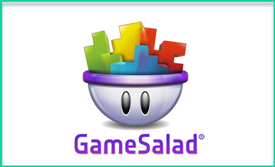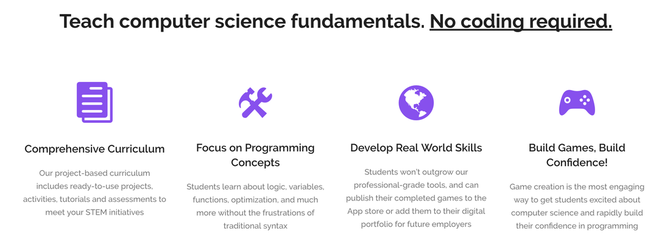
According to the National Science Foundation, women make up half of the total U.S. college-educated workforce, but only 29% of the science and engineering workforce. In order to increase the number of women working in STEM and CS fields, there need to be more female graduates in those programs. The data repeatedly shows that the best way to get more young women involved in those fields is early outreach -- we need to reach them far before they choose a major.
Encouragement and exposure are key indicators for whether or not young women choose to pursue a computer science degree in college, and middle school students are at a particularly critical developmental stage in deciding if they self-identify as someone who is “good at” or even “into” STEM activities and careers.
Organizations like Girls Who Code and Black Girls Code are making great strides in increasing the number of female students that engage in high quality computer science programs. However, it is important to note that programming and computer science are more than “just coding”. The most important lessons to be learned in programming are the mindset and methodology behind breaking large problems into smaller chunks. Fortunately, there is a way to hone those skills without having to type out lines of code.
GameSalad’s easy to use drag-and-drop interface removes the frustrations of traditional coding syntax so that students can rapidly build their confidence in programming. It allows for student self-expression as they import their own art and sounds to instantly bring their creative ideas to life. GameSalad’s powerful tools also help students think and design bigger, without worrying about limiting the scope of their projects.
Game development is a great way to engage female students in STEM, as it is one of the most engaging ways to learn the fundamentals of programming, design thinking and project management. Students are motivated to solve complex problems as they work toward the goal of creating a fun, innovative game for their friends to play. Their mindset shifts from “I messed something up — I give up,” to, “There is a problem with my game logic, and I want to find out how to fix it.”
Havergal, an all girls school in Toronto, held the first ever “Hackergal” game jam last December to coincide with the Hour of Code. The girls worked in small groups to create an original game, and the event successfully built the participants’ confidence and interest in technology and programming courses. It serves as just one example of GameSalad’s potential to impact female students’ future.
Other students have built projects individually, like 15-year-old Kelsea Barker, who harnessed her passion and creativity to create Hue!, her first game on the App Store. Her entrepreneurial vision was realized with a little help from GameSalad, and she encourages her other female friends to "stand out from the crowd" by pursuing creative, and possibly profitable, endeavors.
Despite the current disparity of young women participating in STEM coursework and careers compared to their male peers, there are many groups advocating for change. Innovative programs that encourage young women to both enter and succeed in STEM in the classroom and workforce are gaining momentum every day, and GameSalad is excited to see what this next generation of female leaders will create.
About the Author:
Danielle Burnett is a Teach for America alumna who taught 7-12th grade technology courses at Cross County New Tech High School. She is currently the Principal Learning Architect at GameSalad, where she creates resources for students to learn the fundamentals of computer science through game development. Danielle is passionate about encouraging female students to explore STEM coursework and careers, and volunteers at numerous Austin non-profits to increase female exposure to and excitement about computer science.














